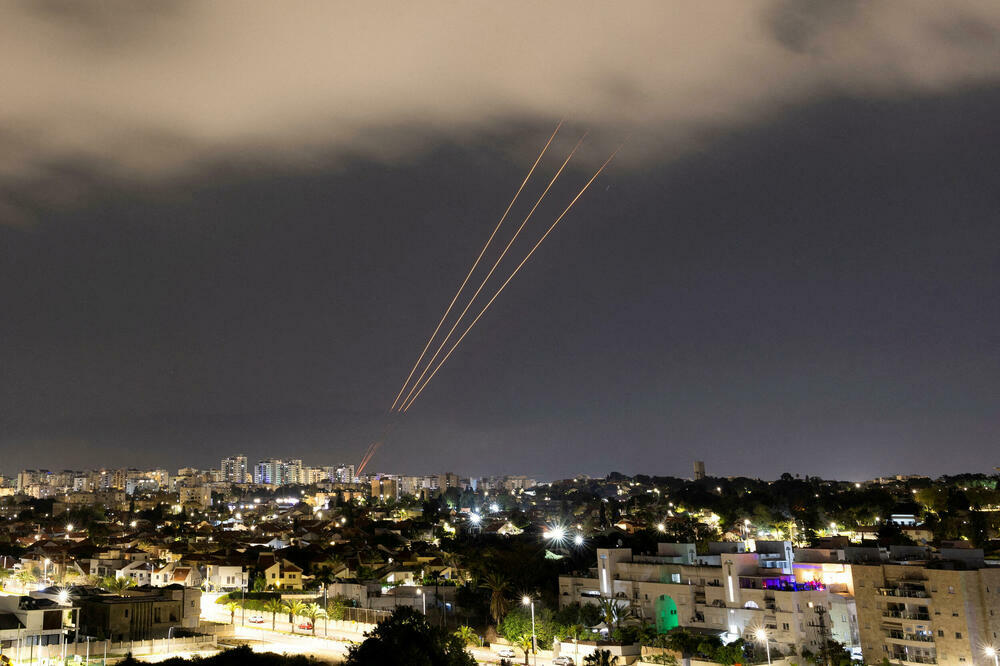It is hard to imagine that anyone in the Levant and the wider Middle East could sleep peacefully on Saturday night, when Iran fired hundreds of drones and ballistic missiles at strategic targets in Israel and Israeli settlements in the occupied West Bank.
The drones and missiles were intercepted (almost all) before they reached their targets, thanks to a coordinated effort by the US, Israel, Jordan and the UK. The reason for Saturday's attack was the Israeli bombing of the Iranian consulate in Damascus on April 1, which killed 13 people, including senior officers of Iran's Islamic Revolutionary Guard Corps. This act, which clearly violates the 1961 Vienna Convention on Diplomatic Relations, forced the Islamic Republic to respond.
Iran decided to attack Israel directly, which is probably explained by the country's desire to protect national pride after the attack on the Iranian consulate: according to the Vienna Convention, it is the sovereign territory of the Islamic Republic.
Paradoxically, this dangerous escalation opens up a unique opportunity for a regional ceasefire that could potentially end the war between Israel and Hamas, prevent direct military conflict between Israel and Iran, and stop Yemeni Houthi attacks on commercial shipping in the Red Sea. Both countries have demonstrated their military capabilities, and if Israeli Prime Minister Benjamin Netanyahu heeds US President Joe Biden's warning and does not retaliate against Iran, then the region could return to a fragile balance. As the Cold War showed, the balance of threats can be a powerful deterrent, maintaining peace and stability.
However, in order to take advantage of this narrow window of opportunity, the UN Security Council is required to adopt a strong, binding resolution calling for a ceasefire in the region. In addition to Israel and Iran, this resolution should apply to all countries in the region, as well as to participants in military operations from third countries.
Moreover, this binding resolution must address the main issue that has led to the current increase in instability in the region: the war in Gaza. In accordance with the previous resolution of March 25 (the US abstained from voting), the Security Council must demand an immediate end to the ongoing Israeli bombardment of Gaza and the release of all Israeli hostages and detainees. Requiring both sides to "fulfill their obligations under international law with respect to all persons in their custody," the resolution could also help secure the release of Palestinians detained by Israel.
Contrary to the claims of some American representatives, the March 25 resolution was binding. However, given the risk of an all-out war, the Security Council must immediately draft and adopt a new resolution (in accordance with Chapter VII of the UN Charter) that applies to the entire region. The new resolution should aim to help achieve a lasting and just solution to the Israeli-Palestinian conflict by presenting a detailed road map for the establishment of an independent Palestinian state within the 1967 borders. Saudi Arabia has said that a precondition for normalizing its relations with Israel is the identification of a credible "path to a solution".
Over the past six months, the Biden administration has unequivocally supported Israel, even at the cost of losing political support among progressive and Arab-American voters. American officials must now make it clear to the Israeli government that they will not tolerate further delays or tricks when it comes to the peace process.
Yes, the reconstruction of Gaza will take years and requires significant international efforts. However, the first crucial step is to achieve an effective, controlled ceasefire in the region. Anything else would mean the risk of continuing an endless cycle of wars and suffering from which no one benefits, especially the Palestinians and Israelis: they are tired of this conflict that has been going on for decades.
The bombing of the Iranian consulate and Iran's retaliatory strike against Israel indicate the potential cost of a regional war. If the current opportunity for de-escalation is not used, the development of the region will be stalled for decades. An immediate ceasefire in the region must be the highest priority of the international community.
The author is an award-winning Palestinian journalist
Copyright: Project Syndicate, 2024. (translation: NR)
Bonus video:





